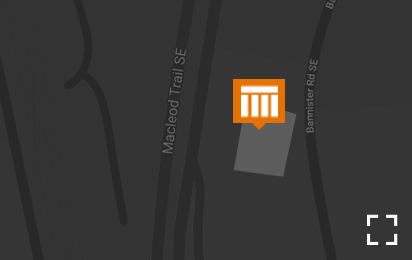Publication
Bona Fide Occupational Requirements: Implications of the Meiroin and Grismer Decisions for Employers
Bona Fide Occupational Requirements: Implications of the Meiroin and Grismer Decisions for Employers
INTRODUCTION
Employers have a duty to accommodate the diverse needs of their employees. This duty may require an employer to modify the workplace, job requirements, or the employer’s standards, policies and practises to ensure that they do not negatively impact an employee because of a disability or other protected ground.
Paragraph 7(1)(a) of the Alberta Human Rights Act, RSA 2000, c A-25.5 (the “Act”) prohibits an employer from refusing to employ or refusing to continue to employ an individual on the basis of a protected ground. However, paragraph 7(1)(a) does not apply with respect to an employer’s refusal, limitation, specification or preference based on a bona fide occupational requirement (“BFOR”).
The law regarding an employer’s BFOR defense has undergone several changes since the Act was enacted in 1966. One notable development occurred in 1999 when the Supreme Court of Canada issued decisions in two human rights cases, namely British Columbia (Public Service Employee Relations Commission) v. British Columbia Government and Service Employees Union, [1999] 3 SCR 3 (the “Meiorin decision”) and British Columbia (Superintendent of Motor Vehicles) v. British Columbia (Council of Human Rights), [1999] 3 SCR 868 (the Grismer decision”).
These leading Supreme Court decisions confirm that while an employer has a broad duty to accommodate the needs of employees, an employee is not legally entitled to complete accommodation.
IMPLICATIONS
The Meiorin and Grismer decisions have significant implications for employers and service providers who choose to rely on a BFOR defense when facing a discrimination complaint. Canadian human rights tribunals have incorporated the Supreme Court’s three-step test from Meiorin into their procedure for investigating complaints of allegedly discriminatory standards.
This investigatory process requires a claimant to first establish prima facie discrimination by showing that they have been denied employment or discriminated against on the basis of a protected ground. The onus then shifts to the employer to prove on a balance of probabilities that the discriminatory standard is a BFOR. To do so, the Meiorin and Grismer decisions require the employer to establish the following:
- That it adopted the standard for a purpose or goal rationally connected to the performance of the job;
- That it adopted the standard in an honest and good faith belief that it was necessary to the fulfillment of that legitimate work-related purpose; and
- That the standard is reasonably necessary to the accomplishment of that legitimate work-related purpose.
In order to show that the standard is reasonably necessary, the employer must demonstrate that it cannot accommodate the employee’s needs without suffering undue hardship. Undue hardship arises if the accommodation would create onerous conditions for an employer, such as significant financial cost or interruption to the employer’s business.
SUPREME COURT DECISIONS
The Meiorin Decision
The British Columbia government (the “BC government”) established minimum physical fitness standards for forest firefighters. This included an aerobic standard requiring firefighters to demonstrate that they could run 2.5 kilometres in 11 minutes or less. The claimant, a female firefighter, failed to meet the aerobic standard after four attempts. Despite her past job performance being satisfactory, she was dismissed for failing to meet the standard. The claimant’s union brought a discrimination complaint on her behalf.
The claimant established prima facie discrimination by showing that the standard had a disproportionately negative effect on women as a group. The claimant did so by bringing evidence that most women have a lower aerobic capacity than most men. In addition, while most women cannot increase their aerobic capacity to the level required by the standard through training, most men can.
The burden then shifted to the BC government to demonstrate that the aerobic standard was a BFOR. It failed at the third step set out above by failing to bring credible evidence that the standard was reasonably necessary for identifying individuals who could perform a forest firefighter’s job safely and efficiently.
The Grismer Decision
The Supreme Court held that the three-part test for a BFOR set out in Meiorin is applicable to service providers as well as employers. In this case, the claimant suffered from an eye condition that damaged his left-side peripheral vision in both eyes. The British Columbia Superintendent of Motor Vehicles (the “Superintendent”) cancelled his driver’s license on the grounds that his vision no longer met the standard of a minimum 120-degree field of vision.
The claimant established prima facie discrimination by showing that he was denied a license on the basis of his physical disability. Further, the claimant was not given an opportunity to demonstrate that he could compensate for his reduced vision and be licensed without jeopardizing road safety. The Superintended met the first step of the Meiorin test by establishing that the Superintendent’s goal of achieving reasonable highway safety was rationally connected to the field of vision standard. However, the Superintended failed to show that the standard was reasonably necessary to achieve the goal and failed to demonstrate that performing individual driver assessments would result in undue hardship.
CONCLUSION
Employers and service providers must adopt standards, policies and practices that accommodate people with disabilities where they can do so without impairing legitimate goals and without suffering undue hardship. If an employer is considering terminating an employee for failing meet a certain standard, the employer must ensure that the standard is a BFOR. Specifically, an employer should be prepared to respond to a complaint of alleged discrimination with evidence establishing each of the three requirements for a BFOR set out in the Meiorin and Grismer decisions. Any failure to do so will likely result in damages against the employer.
For further information please contact the author, Shane King at 403.254.3849 or any member of our Commercial Litigation Group.

